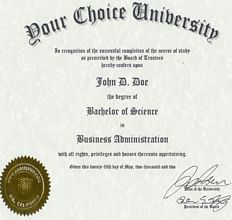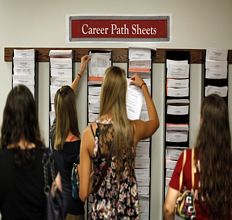GOOGLE ADSENSE
Student Loan Consolidation FAQ's
Got Questions About Student Loan Consolidation? This information is designed to help you find the right consolidation student loan to help ease your repayment burden. What is a Student Consolidation Loan? After graduation, lenders expect graduates to start repaying their student loans. In simple terms, a student consolidation loan combines two or more loans into one. How Does a Student Consolidation Loan Work? You receive a new repayment schedule based on: (a) the size of your education loan debt, (b) the loan interest rate and, (c) the repayment plan you’ve chosen. What Will My Interest Rate Be Based On? One really great piece of news is, your interest rate can never exceed 8.25%. What Are The Benefits of Obtaining a Student Consolidation Loan? By consolidating their student loans, graduates only have to concern themselves with paying one lender instead of several. In addition, consolidating their student loans can save them money because the interest rate on their student consolidation loan generally is lower than the interest rates on their current student loans. What Types of Student Consolidation Loans Are There? When Can I Obtain a Student Consolidation Loan? You can also get a Direct Consolidation Loan (but not a FFEL Consolidation Loan) while you’re in school. You must be attending at least half time and have at least one Direct Loan or FFEL in an in-school period. Why Wouldn’t Every Student Apply For This Type of Student Loan? Brad Matheson is a professional Financial Consultant who specializes in helping businesses and individuals resolve their debt issues. He believes that all debt problems can be solved with the right debt advice and aspires to help Americans learn all of their debt options and exercise all of their rights. Says, Matheson, “Don't allow the Student Loan Debt crisis or a Defaulted Student Loan to hinder or block your career aspirations or stymie your financial dreams, There is Student Loan Help available!” Source: http://studentloanwhiz.com/ | |
|
Student Loan and Financial Aid Educational
Resources:
Financial Aid
| Money for College
| Federal
Student
Loan | College Scholarship Search
Minority Scholarship | College Grants
| College Search | Perkins Loans | Stafford
Loans
Parent PLUS
Loans | GradPLUS
Loans | College
Scholarships | Private
Student Loan
Student Consolidation Loans | Financial Aid Acronyms | Financial Aid Glossary
StudentLoanWhiz.com is a leading information portal dedicated to helping students and their families find the financial resources they need to complete their education goals. StudentLoanWhiz.com is your trusted resource for student loans for schools in the United States. Whatever your needs, we’re here to simplify the process by providing an unbiased evaluation of virtually every type of student loan available. You provide the will and we'll help make the way.
About Us | Contact Us | Privacy Policy | Terms of Use | Disclaimer
Home | U.S. Department of Education | College News | Site Map
Copyright © Student Loan Whiz, 2007-2012 All Rights Reserved.
Powered by the Student Loan
Whiz











